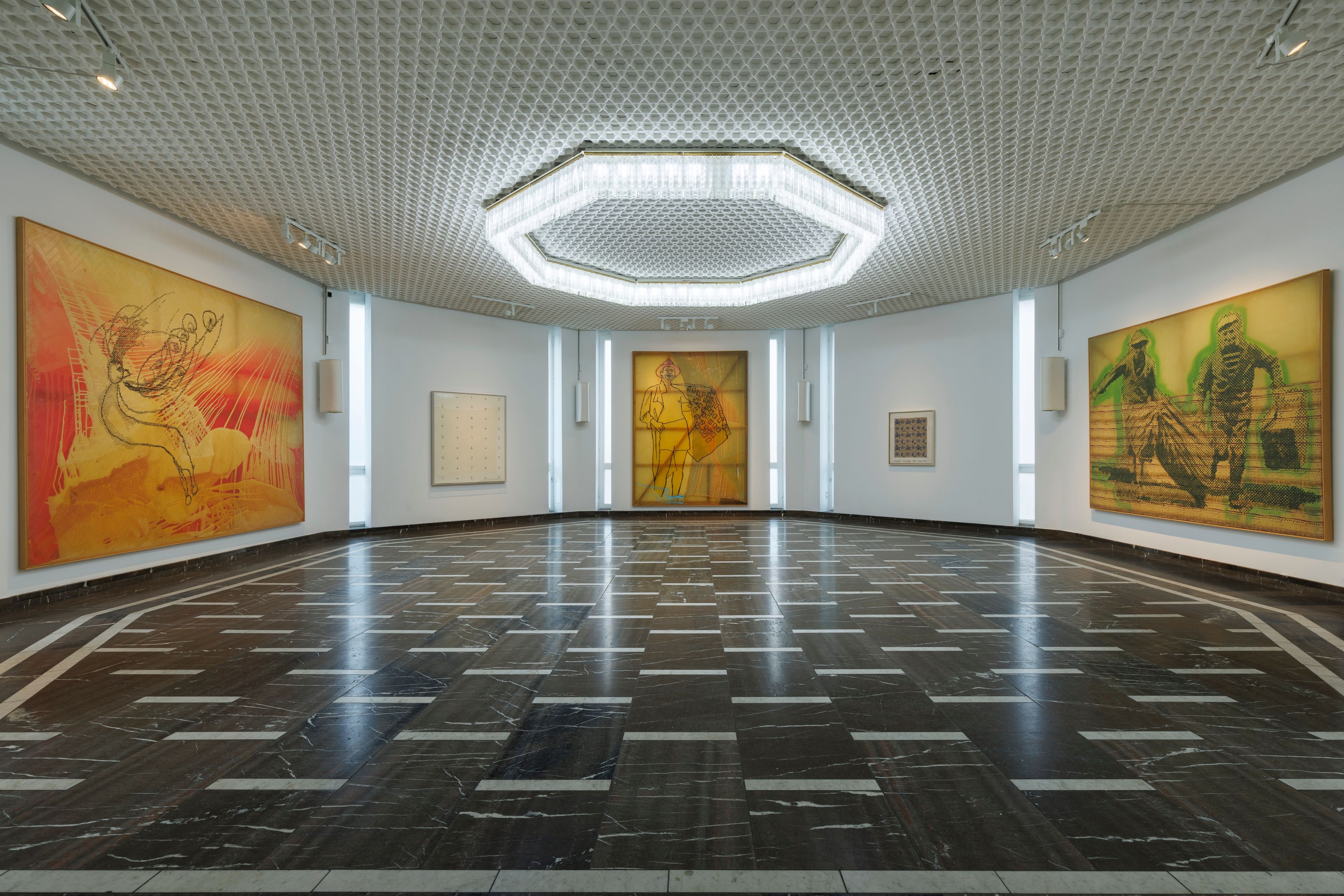Schinkel Pavillon, Berlin, Germany
September 12, 2024–February 2, 2025
Sigmar Polke was the subject of a major solo exhibition at Schinkel Pavillon, curated by Bice Curiger. Installed in the Schinkel Pavillon’s historic rooms, Sigmar Polke: Der heimische Waldboden. Höhere Wesen befahlen: Polke zeigen! (The Native Forest Floor. Higher Powers Command: Show Polke!) included forty works from important international collections. This exhibition aimed to make the works of Polke, one of the outstanding artists of the 20th century and a pioneer for generations of young artists, accessible to a wide audience for the first time in many years. Bringing together paintings, photographs, films and prints, dating from the 1960s to the 2000s and illustrating Polke’s artistic complexity, the exhibition focused on the political aspects of Polke’s work and his unique skill as a critical commentator ahead of his time.
From an early age, Polke developed a keen interest in found images, their circulation, legibility and impact on the public imagination. In 1963, as response to the socialist GDR art of the time, the student Polke, together with fellow artists Manfred Kuttner, Konrad Lueg and Gerhard Richter, founded the artistic movement Kapitalistischer Realismus (Capitalist Realism). The booming economy of West Germany and the accompanying post-war bourgeois idyll created novel, consumerist imagery, which Polke playfully and presciently incorporated into his art.
Born in the Silesian town of Oels, now Oleśnica, and growing up in both East and West Germany, Polke was one of the artists of the 1960s who dealt with the collective trauma of the post-war generation. He confronted the political crisis of his time with a genuinely painterly, yet highly analytical approach to reality, with the effect that thirteen years after his death, these supposedly historical works are still highly topical, eerily reflecting today’s conflicts, crises and their representation in the media. Known for his witty mental agility and investigations of the materiality of art, Polke’s entire œuvre bears witness to an inimitable personal and artistic love of freedom, without ever denying his belief in the great communicative relevance of art.
Learn more at Schinkel Pavillon.
